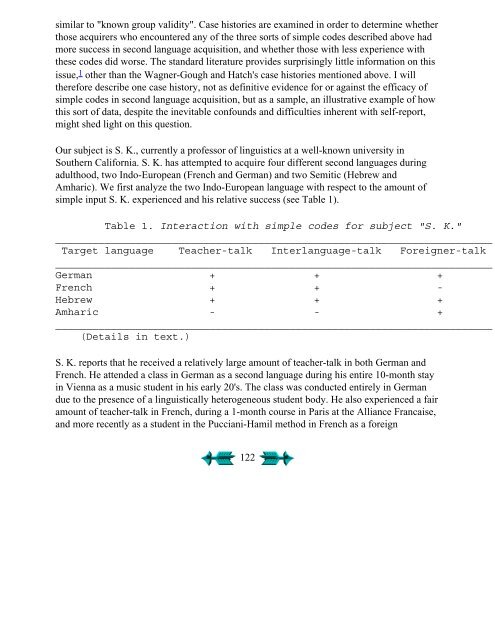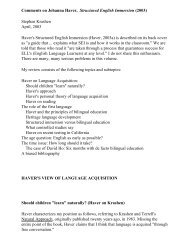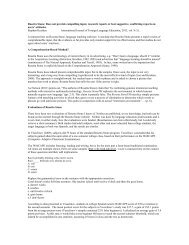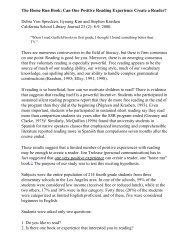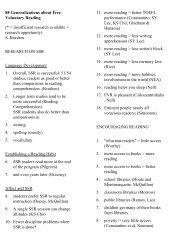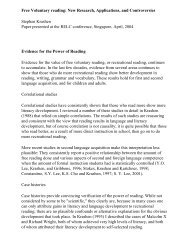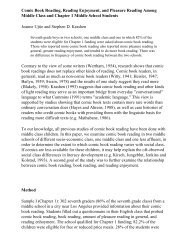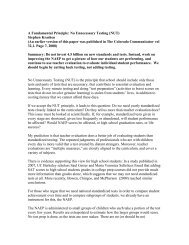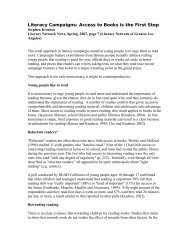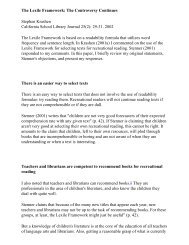Second Language Acquisition and Second ... - Stephen Krashen
Second Language Acquisition and Second ... - Stephen Krashen
Second Language Acquisition and Second ... - Stephen Krashen
Create successful ePaper yourself
Turn your PDF publications into a flip-book with our unique Google optimized e-Paper software.
similar to "known group validity". Case histories are examined in order to determine whether<br />
those acquirers who encountered any of the three sorts of simple codes described above had<br />
more success in second language acquisition, <strong>and</strong> whether those with less experience with<br />
these codes did worse. The st<strong>and</strong>ard literature provides surprisingly little information on this<br />
issue, 1 other than the Wagner-Gough <strong>and</strong> Hatch's case histories mentioned above. I will<br />
therefore describe one case history, not as definitive evidence for or against the efficacy of<br />
simple codes in second language acquisition, but as a sample, an illustrative example of how<br />
this sort of data, despite the inevitable confounds <strong>and</strong> difficulties inherent with self-report,<br />
might shed light on this question.<br />
Our subject is S. K., currently a professor of linguistics at a well-known university in<br />
Southern California. S. K. has attempted to acquire four different second languages during<br />
adulthood, two Indo-European (French <strong>and</strong> German) <strong>and</strong> two Semitic (Hebrew <strong>and</strong><br />
Amharic). We first analyze the two Indo-European language with respect to the amount of<br />
simple input S. K. experienced <strong>and</strong> his relative success (see Table 1).<br />
Table 1. Interaction with simple codes for subject "S. K."<br />
_______________________________________________________________________<br />
Target language Teacher-talk Interlanguage-talk Foreigner-talk<br />
_______________________________________________________________________<br />
German + + +<br />
French + + -<br />
Hebrew + + +<br />
Amharic - - +<br />
_______________________________________________________________________<br />
(Details in text.)<br />
S. K. reports that he received a relatively large amount of teacher-talk in both German <strong>and</strong><br />
French. He attended a class in German as a second language during his entire 10-month stay<br />
in Vienna as a music student in his early 20's. The class was conducted entirely in German<br />
due to the presence of a linguistically heterogeneous student body. He also experienced a fair<br />
amount of teacher-talk in French, during a 1-month course in Paris at the Alliance Francaise,<br />
<strong>and</strong> more recently as a student in the Pucciani-Hamil method in French as a foreign<br />
122


